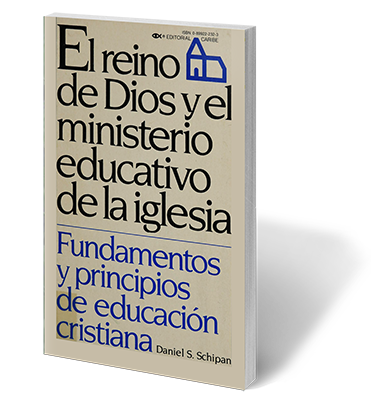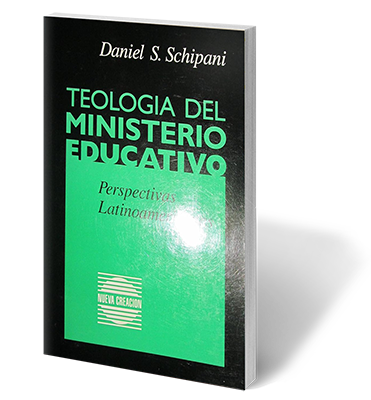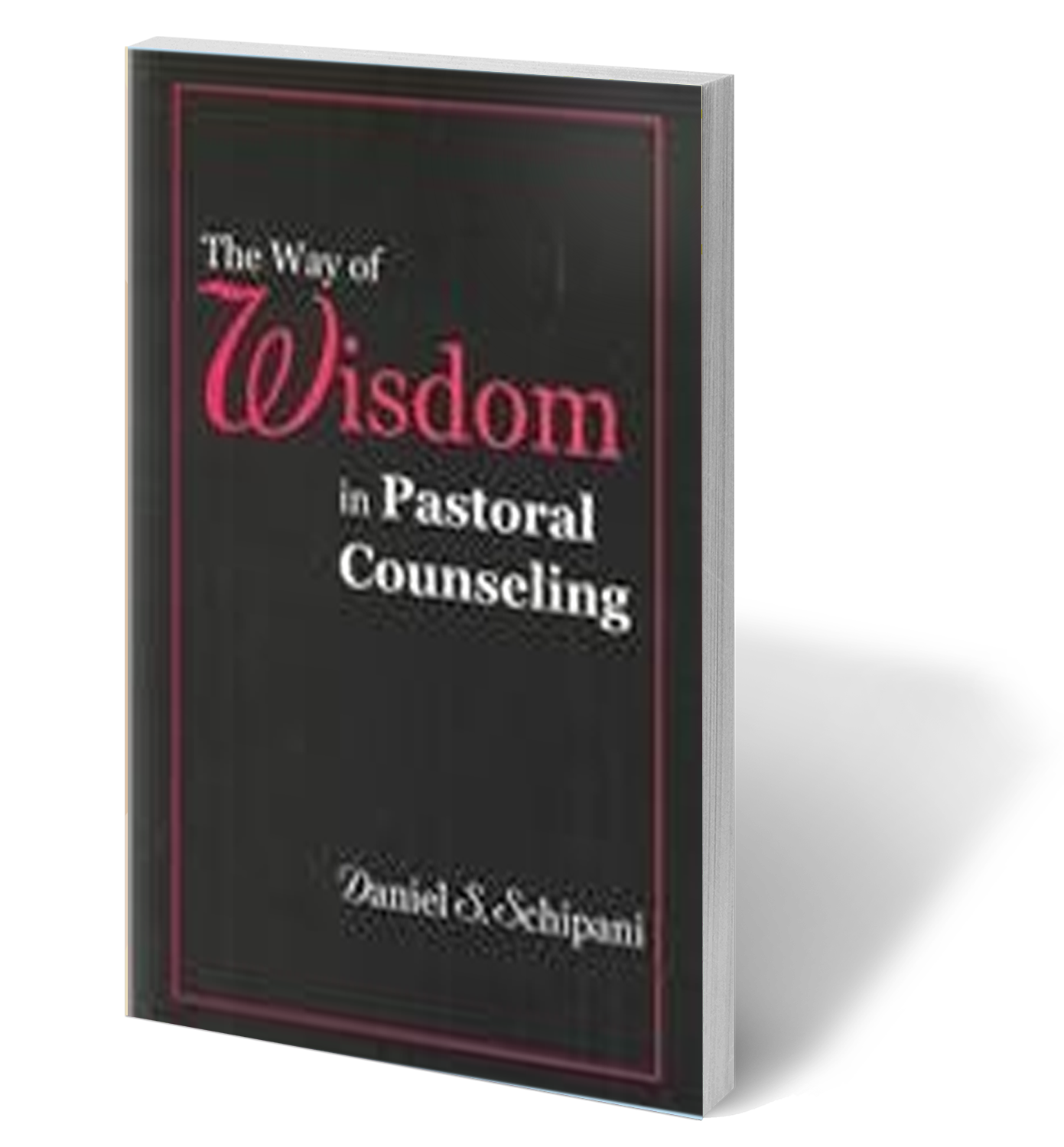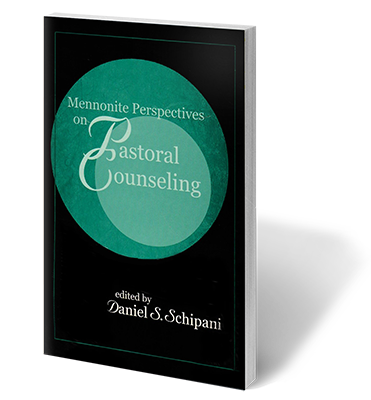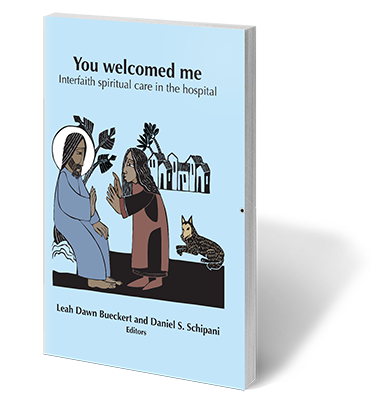Libros
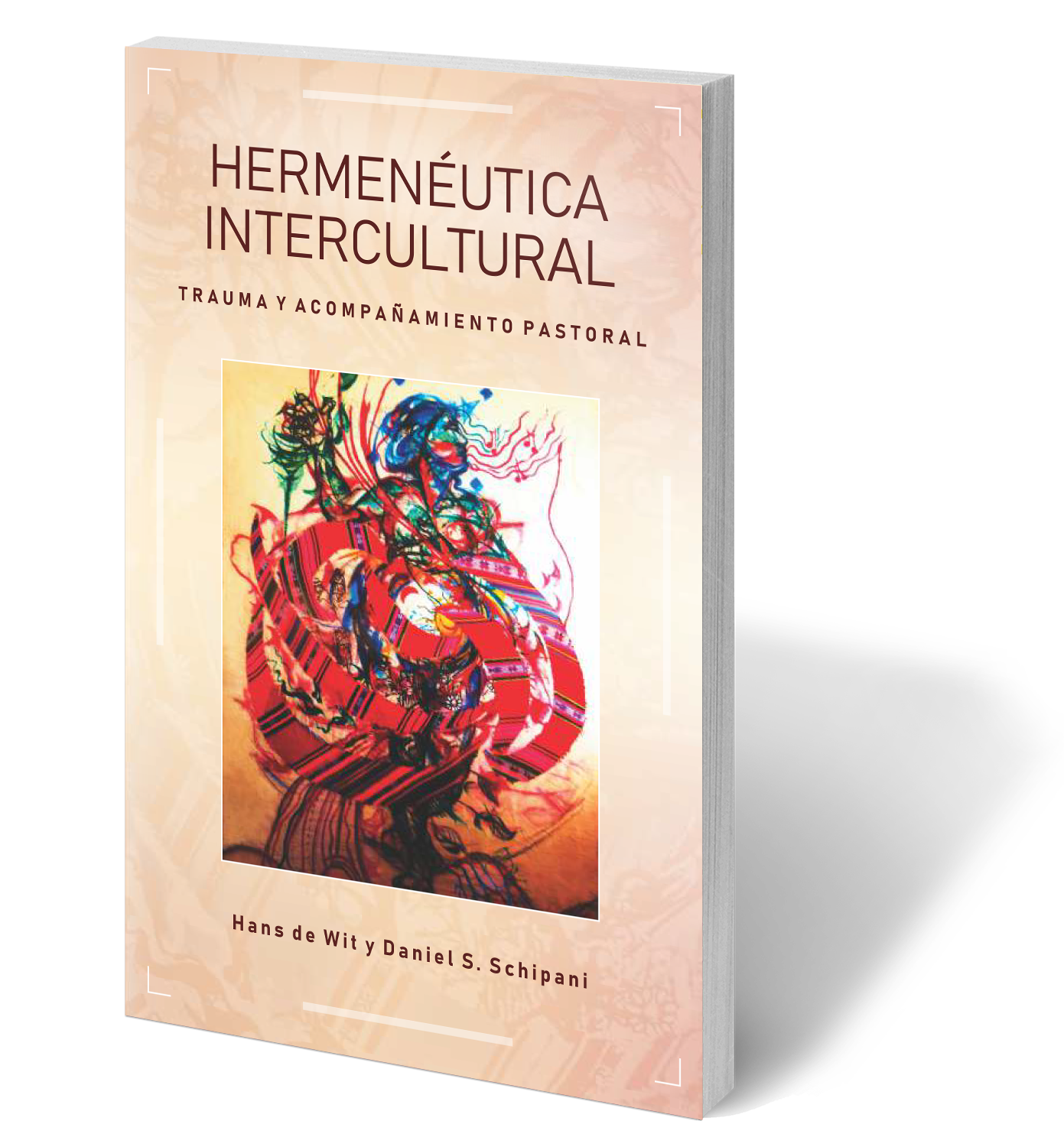

Próximamente disponible
Hermenéutica intercultural
Trauma y acompañamiento pastoral
Hans de Wit y Daniel S. Schipani responden en este libro al desafío sobre el lugar y el uso de la Biblia en la iglesia y muestran el valor de una nueva hermenéutica intercultural e interdisciplinaria.
La primera parte describe y explica las características principales de la nueva hermenéutica bíblica intercultural.
Le sigue un ensayo analítico y evaluativo de la nueva hermenéutica desde la teología práctica.
La segunda parte articula el potencial transformador y sanador de esta hermenéutica de cara a la realidad del trauma y los recursos disponibles en las comunidades de fe para el acompañamiento eficaz.
La última sección del libro ofrece dos ilustraciones bíblicas de los desafíos y las oportunidades del cuidado intercultural e interreligioso.
Camino de Sabiduría CONSEJERÍA
Cuidado Psico-espiritual 2020
Este libro responde a la necesidad de material bibliográfico fresco en el área de consejería o asesoramiento, dentro del campo más amplio del cuidado psicoespiritual. Su contribución principal consiste en la presentación clara de un nuevo modelo. Junto con el Manual de Psicología Pastoral: Fundamentos y Principios de Acompañamiento, por el mismo autor, se ofrece como texto para cursos de consejo pastoral y de consejería cristiana. También es un recurso muy útil para quienes ya ejercen el ministerio pastoral o la profesión de consejeras y consejeros o psicoterapeutas cristianos.
La primera parte del libro—“Experiencia y Fundamento”—presenta casos de consejería y un esbozo del modelo propuesto. Incluye también un estudio detallado de la tesis del autor: la sabiduría a la luz de Dios es el principio guía y la metáfora central de ese ministerio de cuidado psico-espiritual.
La segunda parte—“Naturaleza del Modelo”—considera el carácter teológico-ético y el marco terapéutico de la consejería como forma especial de acompañamiento. Identifica así los aspectos esenciales de lo que se entiende como consejería cristiana y pastoral, y como consejería cristiana y pastoral.
La tercera parte—“Aplicaciones del Modelo”—incluye ilustraciones, pistas clave, y ramificaciones del modelo de consejería como camino de sabiduría. De esa manera analiza diversas situaciones que requieren acompañamiento con el fin de demostrar el potencial ministerial y profesional del nuevo modelo.
PAULO FREIRE
Vigencia y Desafío
Paulo Freire continúa ejerciendo una influencia considerable en el escenario de un mundo globalizado, donde las fuerzas guiadas por la lógica neoliberal del mercado conspiran para silenciar a las personas y desmantelar las organizaciones sociales con el fin de promover una cultura de miedo, violencia e individualismo… Por lo tanto, rescatar su pensa-
miento en su vertiente radical, creativa y profética, es sin duda una tarea urgente y un ejercicio en resistencia. Freire nos urge a acceder críticamente a nuestro contexto sociopolítico-económico porque las deterioradas condiciones de vida en el planeta continúan cobrando víctimas en cualquier lugar donde la desigualdad social y la explotación económica perpetúa la marginación de las mayorías.
Ante este contexto mundial de desesperanza, Daniel Schipani nos ofrece este valioso libro en el que rescata la importancia del legado freireano para la actualidad, enfatizando aspectos fundamentales de su pensamiento… fundamentalmente, destaca una dimensión del trabajo de Freire que muchos de sus estudiosos omiten, a saber, la influencia de su formación cristiana, que constituye una parte esencial de su cosmovisión, su compromiso político y su teología.
Este libro promueve un rescate del pensamiento de Freire y nos insta a repensar nuestra tarea como educadoras y educadores, reafirmando la tarea pedagógica de la Iglesia en su compromiso ético-profético. Merece ser leído por su relevancia en la educación cristiana y teológica basadas en una pedagogía crítica y liberadora.
El reino de Dios y el ministerio educativo de la iglesia
Fundamentos y principios de educación cristiana
La iglesia no puede dejar pasar más tiempo sin formular un serio y adecuado programa educativo que alcance y beneficie a su feligresía y a toda la comunidad a la que sirve con la Palabra de Dios. Pero, este programa debe caracterizarse por su fidelidad al Evangelio del Reino y por su relevancia y aplicabilidad en el contexto latinoamericano.
Schipani formula, lo que podríamos llamar todo un basamento y un esqueleto estructural sobre los cuales cualquiera congregación puede poner a funcionar su propio programa de educación cristiano-secular. Al mismo tiempo, entrega en su libro la información y las herramientas básicas que todo creyente llamado a servir en y contenido a la misión que tiene en el mundo.
Teología del ministerio educativo
Perspectiva Latinoamericana
Este libro va dirigido especialmente a la comunidad de educación y reflexión teológica y a los compañeros y compañeras involucrados en un ministerio educativo que reclama seria fundamentación y sentido de dirección a la luz de la situación histórica que vivimos. El título original evoca dos imágenes vinculadas entre sí: la del encuentro y la de la confrontación.
La primera de ellas nos presenta a la teología de la liberación y a la educación cristiana encontrándose una con la otra «cara a cara», en un diálogo «mano a mano». «Encuentro» denota, en este caso, una interacción que se produce a través de la uxtaposición de estos dos campos.
La segunda imagen es la de la confrontación, entendida en el sentido de «situarse en frente de» (inclusive, con actitud desafiante). «Confrontación» sugier también un desafío, al menos en la forma de un compromiso crítico mutuo, como si se tratara de una pugna teórica e ideológica entre la educación y la teología de la liberación. Esta connotación específica del tema de estelibro está, en cierta forma, presente ya en el carácter intrínsecamenteconfrontativo de las teologías de la liberación, especialmente de susexpresiones latinoamericanas, en las cuales nos concentraremos.
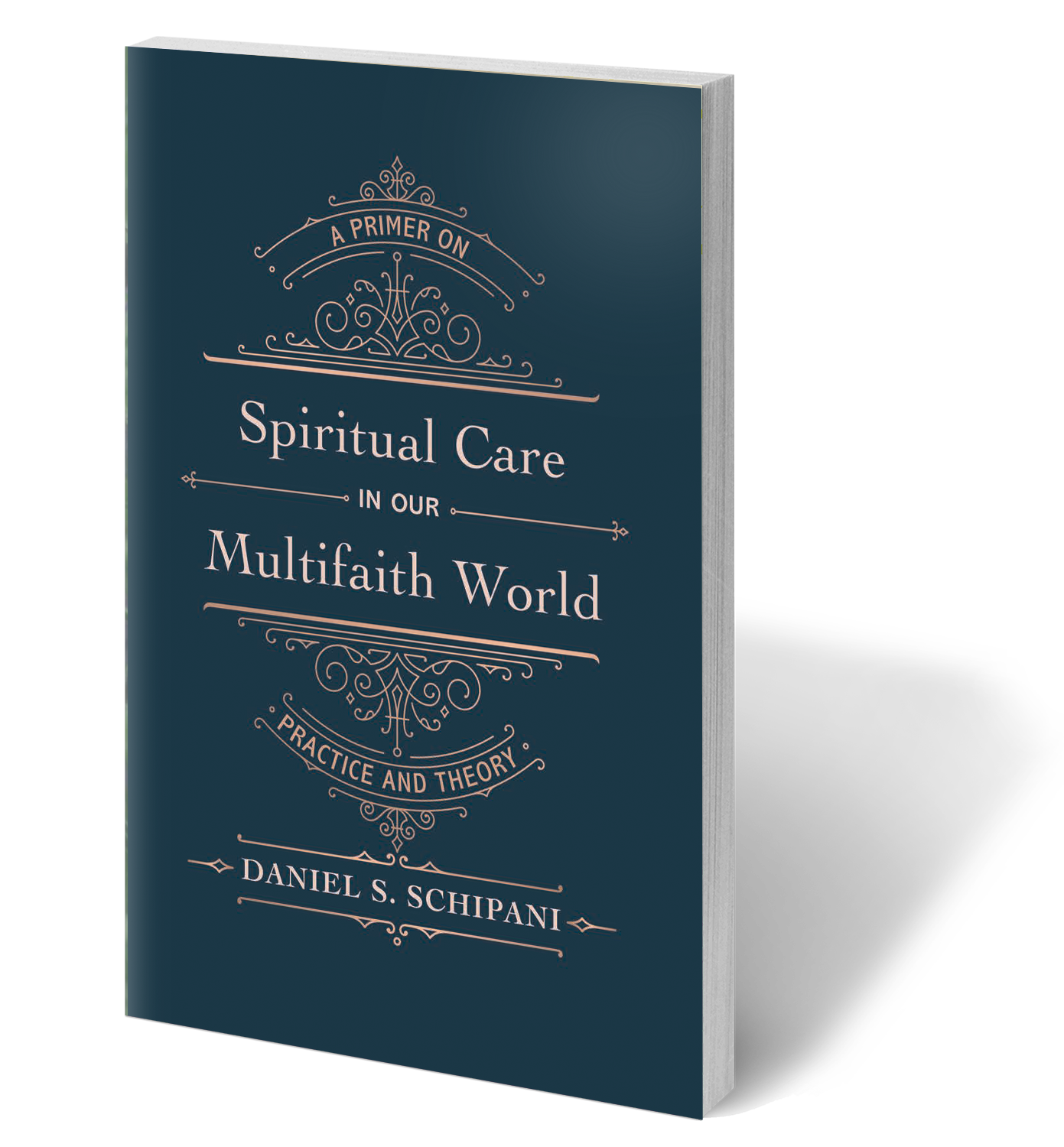

Próximamente disponible
Spiritual Care in our Multifaith World
Across the helping professions, and as a compassionate response to human suffering, spiritual care is a special process of companioning. Furthermore, all forms of spiritual care always consist in connecting diverse wisdom traditions with care receivers’ spiritual resources, longings, and struggles in socio-cultural and contextually pertinent ways.
This book thoroughly explicates such understanding with interdisciplinary lenses. Its main purpose is to offer a comprehensive response to the new challenges and opportunities for excellent care presented by increasing cultural and religious-spiritual pluralization. Practical guidelines and case studies are connected with models of spirituality, spiritual toxicity and injury, communication strategies for engaging difference, patterns of caregiving work, and profiles of professional competence.
In addition to offering an overarching orientation to the field, the contents of this book invite further reflection, dialogue, and collaboration among clinical pastoral education and psychospiritual therapy students and supervisors; chaplains, pastors and other religious caregivers; counselors; psycho-therapists; and others interested in spiritual care in our multifaith world. It thus reflects the shared hope and, indeed, the expectation that spiritual care theory and practice across traditions and disciplines will continue to be enhanced in the days ahead.
Interfaith Spiritual Care
Understanding and Practices
The book aims to enhance the practice of spiritual caregivers in the hospital and other settings as they encounter the growing plurality of faith traditions and expressions among care receivers and colleagues.
«Because the authors focus on chaplaincy ministry, the book will be beneficial for chaplains, people who train chaplains, people who want to be chaplains, and people who are already involved in interfaith spiritual care. It is a particularly valuable resource for any chaplain or chaplaincy department where interfaith ministry occurs.»
Rodney W. Seeger, ACPE supervisor emeritus, Mill Valley, California
The research and writing project leading to this publication was designed with the following goals in mind: to explore the dynamics of interfaith spiritual care as a work of practical and pastoral theology; to identify reliable guidelines for the competent, and duly contextualized, practice of interfaith spiritual care; and to invite further cooperation on this subject among practitioners and scholars. The project aims to enhance the practice of spiritual caregivers in the hospital and other settings as they encounter the growing plurality of faith traditions and expressions among care receivers and colleagues. The present volume is therefore intended for chaplains, pastors, Clinical Pastoral Education students and other caregivers, such as counselors and psychotherapists, both in training and already in practice.
The first part stems from an unprecedented year-long seminar sponsored by the Lutheran Hospital of Indiana Pastoral Care Division and Associated Mennonite Biblical Seminary Pastoral Care and Counseling Program. Such collaboration provided a unique opportunity to reflect systematically on spiritual care in interfaith situations in a health care center. The second part offers a partial view of the expanding field of interfaith spiritual care. The essays included reflect the commonalities and differences encountered in various culturally specific settings in diverse countries.
Daniel S. Schipani, from Argentina, is Professor of Pastoral Care and Counseling at Associated Mennonite Biblical Seminary, Elkhart, Indiana, USA. He holds a Dr. Psy. (Universidad Cathlica Argentina) and a Ph.D. (Princeton Theological
Seminary). Schipani serves as a pastoral counselor volunteer, lectures widely and is the author or editor of over twenty books. His research interests include intercultural hermeneutics and human formation and transformation processes.
Leah Dawn Bueckert, from Canada, serves as Spiritual Care Coordinator with the North Eastman Health Association in Manitoba, Canada. She earned a M. Div in Pastoral Care and Counseling (Associated Mennonite Biblical Seminary) and
completed a residency in Clinical Pastoral Education at the Lutheran Hospital of Indiana. Together with Daniel S. Schipani, Bueckert co-edited Spiritual Caregiving in the Hospital: Windows to Chaplaincy Ministry (Pandora Press, 2006). She also has
a professional interest in the field of health care ethics.
Where are we? Pastoral Environments and Care for Migrants
Intercultural and Interreligious Perspectives
The intercultural and interreligious perspectives included in this book offer diverse complementary contributions regarding challenges and opportunities in the face of the manifold reality of migrations in our time. This, in a nutshell, is what readers can expect to find in these pages. They are invited to engage in further study and collaboration in search of better ways to care with and for migrants in our midst.
The first section—“Surveying the landscape of migration”—may be considered foundational in the sense of including multidisciplinary material necessary for both theory and practice. The authors offer a rich harvest of conceptual resources stemming from biblical hermeneutics, the social and political sciences, philosophy, theology, religion and spirituality. The second section—“Cultivating care for migrants”—presents a sample of contextualized considerations explicitly connecting migrations and caregiving. It also describes in detail a number of illustrations of international and intercultural dynamics at play. The third and final section— “Mediating spaces: Reflections on pastoral care with migrants”—extends the discussion of migrations and care by focusing on the dynamics of hospitable space. It includes new models for assessing the interaction between immigrants and hosting communities, and faith communities practices in particular. A selected and annotated bibliography provides orientation for further reflection and dialogue.
Multifaith Views in Spiritual Care
The project leading to this book builds on the fruits of ongoing work in interfaith spiritual care. It was designed with a twofold purpose: to foster appreciation for the uniqueness and special gifts of seven faith traditions, together with a deeper understanding of commonalities and differences among them; and to encourage collaboration among spiritual care practitioners and scholars. This book is intended for chaplains, pastors and other religious caregivers, Clinical Pastoral Education students and supervisors, counselors and psychotherapists, and others interested in the expanding field of spiritual care in our multifaith world.
In a world of interfaith violence and interfaith healing, how do we get our arms around spiritual care? How do Aboriginal people understand and go about spiritual care? Anything like the Muslims or Hindus? Like the Humanists and the Christians and Buddhists and Jews? In answering this question, Daniel Schipani has captured insights from seven traditions by going back to the sources, practices, and competencies of each while holding up the professional excellence that is unique to all. This book is a gift to the exploding world of interfaith thought and practice.
—Bishop William E. Swing, founder and president of the United Religions Initiative, and coauthor of Building Wisdom’s House
Beneficial to any spiritual caregiver concerned with religious diversity, this new handbook by Daniel Schipani and his international team of colleagues artfully combines theory with methodology. Spiritual care teachings and practices of seven traditions are introduced by blending instructional narrative with engaging anecdote and case studies. The emphasis on core spiritual care competencies from these seven points of view and its attention to multifaith spiritual care pedagogies distinguishes this book from other chaplaincy texts.
—Lucinda A. Mosher, Faculty Associate in Interfaith Studies, Hartford Seminary, and author of the book series Faith in the Neighborhood, and Toward our Mutual Flourishing
A much-needed resource in the contemporary practice of pastoral care, counseling, and health care chaplaincy globally, Multifaith Views in Spiritual Care demonstrates how an intercultural postmodern paradigm works in the realms of faith. Carefully crafted chapters which engage faith perspectives, spiritual care theory, and clinical practice from within Aboriginal, Hindu, Buddhist, Jewish, Christian, Islamic, and Humanist perspectives, provide significant information and orientation for competent and reflective practice of interfaith spiritual care. A must-read for all caregivers who realize how important people’s own faiths are to their well-being, health, and healing.
—Emmanuel Y. Lartey, Professor of Pastoral Theology, Care and Counseling, Candler School of Theology, and author of In Living Color: An Intercultural Approach to Pastoral Care and Counseling
One of the strengths of Multifaith Views is demonstrating to the reader how the overlapping core competencies for spiritual care givers are refracted through the lens of particular faith traditions. In his epilogue, Schipani appears to draw on all of the preceding chapters, as well as his own research and theories, to present a comprehensive list of core competencies in the domains of doing, knowing and being. These pages alone could serve as a worthy manifesto for every interfaith spiritual care provider.
— Lori Klein, Stanford Hospital and Clinics, Palo Alto, CA
Spiritual Caregivers in the Hospital:
Windows to Competent Practice
Even as hospitals increasingly recognize spiritual care as an essential component of holistic care, chaplains are still in the process of defining their role. This book acknowledges and celebrates the unique contribution of hospital chaplains, fosters understanding and support for their work, and seeks to elicit interest in their ministry of spiritual caregiving.
«The writers bring together a wealth of conceptual and practical information for those engaged in the challenging ministry of caring for persons in crises. Required reading for any chaplain or spiritual care provider, this book is also an excellent resource for those training professional caregivers.» —Teresa E. Snorton, Presiding Bishop of the Fifth Episcopal District of the CME Church; former Executive Director, Association for Clinical Pastoral Education (ACPE)
«This resource addresses the unique contributions of professional chaplains and the foundations and guiding principles that help spiritual care providers respond to specific concerns and difficult issues.» —George Abram Neufeld, Retired Provincial Coordinator of Spiritual Care for Manitoba Health
«This book fills a gap in the literature of healthcare chaplaincy. A must read for chaplains, it will also be helpful to CPE students and supervisors as well as pastoral theologians.» —Mark LaRocca-Pitts, Former Staff Chaplain, Regional Medical Center, Athens, Ga.
«Here are the voices of spiritual care providers who have claimed their places as healers in the health care institutions of our countries. Their stories and reflections convey compassion and competence, discerning spirits and deep faith, and an integration of theory and practice.» —Glen R. Horst, Retired CPE Teaching Supervisor; Spiritual Care Advisor, Canadian Virtual Hospice
«This valuable guide provides tools to empower and assist professional chaplains in articulating their education, training, and contributions to administrators and other members of the multidisciplinary team. It presents an engaging, in-depth overview of the competencies and expertise clinically trained chaplains offer.» —Sue Wintz, Retired Staff Chaplain, St. Joseph’s Hospital and Medical Center, Phoenix, Ariz.
Leah D. Bueckert is Case Coordinator with Transitional Living Centres, Inc. She was formerly Spiritual Care Coordinator with the Eastman Health Association in Manitoba, Canada.
Daniel S. Schipani is Professor Emeritus of Pastoral Care and Counseling at Anabaptist Mennonite Biblical
Seminary, Elkhart, Indiana, USA.
The Way of Wisdom in Pastoral Counseling
In a breathtaking display of careful scholarship, depth of knowledge and reflection on practice, The Way of Wisdom in Pastoral Counseling touches the pulse of current thinking and development in the fields of pastoral care and counseling. In the short space of four chapters, Daniel Schipani manages to offer an important re-framing and re-orienting of pastoral care and counseling. Schipani interprets pastoral care and counseling as practical theological disciplines founded upon the Biblical concept of wisdom in the light of God. He refracts ‘wisdom’ through the lens of a redefined Aristotelian notion of phronesis
Schipani begins with a critique of the ‘clinical-medical paradigm’ for depending too heavily on individualist psychological theories and existentialist theologies and philosophies. This, however, is not anti-western ranting. Nor is it an attempt to replace one psychological model with another – or with one from a different human science. The task Schipani undertakes is far more profound. What he proposes is a new central metaphor for the theory and practice of pastoral counseling. This ‘new’ metaphor actually returns to the theological and biblical origins of the ministry of the church. The proposal is for ‘wisdom in the light of God’ to once again become the heart and soul of pastoral counseling. Psychology and the mental health disciplines are not excised, they are merely put in their rightful subordinate place – in the theory and practice of pastoral counseling. Pastoral counseling is recast as a sub-discipline of pastoral care, which is itself seen from a practical theological perspective and as a ministry of the whole church. Pastoral counselors become ‘care-giving sages’ who embody and draw creatively upon the heritage and tradition of the Judeo-Christian…
Manual de Psicología Pastoral
Fundamentos y Principios de Acompañamiento
Este manual de acompañamiento pastoral se ha diseñado y escrito desde una cierta perspectiva de la psicología pastoral, campo de reflexión y práctica que suele entenderse de varias maneras diferentes. Por lo tanto, al iniciar nuestro estudio es necesario aclarar en qué consiste el enfoque que se presenta en este libro.
Para ciertos autores, la psicología pastoral es el resultado de la contribución de la psicología, en sus múltiples sub-disciplinas, a las diversas tareas del ministerio pastoral en sentido amplio. Otros aportes la presentan como la contribución de la psicología, también en sus múltiples sub-disciplinas, aplicada especialmente al cuidado y el consejo (también llamado asesoramiento, o consejería) pastoral, tanto teórica como prácticamente. En ambos casos, en consecuencia, se tiende a ver a la psicología pastoral como una rama de la psicología, y de la psicoterapia en particular; en otras palabras, se trataría de una sub-disciplina psicológica especializada. La tercera manera de entender, practicar, y pensar a la psicología pastoral es como una sub-disciplina de la teología pastoral1 o subordinada a ésta, la cual a su vez se comprende ya sea como sinónimo o como una expresión de la teología práctica2. Por último, la psicología pastoral puede verse también como una disciplina «híbrida», es decir con dimensiones teóricas y prácticas que integran de maneras únicas perspectivas y recursos de la psicología y de la teología pastoral. Como tal, resulta ser una rama de la teología práctica en el sentido contemporáneo del término. Es esta última manera de considerar y trabajar en psicología pastoral la que caracteriza el contenido de este manual.
Mennonite Perspectives on Pastoral Counseling
Table of contents:
• The Pastoral-Theological Nature of Pastoral Counseling (Daniel Schipani)
• Anabaptism and Psychology (Alvin Dueck)
• Counseling Connectedness and Community (David Augsburger)
• Communal Pilgrimage (Lonnie Yoder)
• Pastoral Counseling in a Congregational Setting (Nancy Kauffmann)
• Spiritual Direction and Pastoral Counseling in Mennonite Perspective (Marcus Smucker)
• Pastoral Counseling as a Form of Pastoral Care (Marianne Mellinger)
• Mutual Address and Accountability in Couples Therapy (Delores Friesen)
• Pastoral Counseling in a Community Health Care Center (Daniel Schipani)
• Glimpses of the Heart of Caring (Leah Dawn Bueckert)
• Pastoral Care and Counseling … in Java (Mesach Krisetya)
• Pastoral Care and Counseling … in the Netherlands (Lies Brussee-van der Zee)
“This clear look at pastoral counseling from an Anabaptist-Mennonite perspective focuses on the congregation as the locus for pastoral counseling. The writers make a convincing case for pastoral counseling as a ministry of the church. Yet their examination of pastoral counseling in other settings and in various cultural contexts broadens the discussion of where and how pastoral counseling can be practiced.” —Homer U. Ashby, Jr.
You Welcomed Me
Interfaith Spiritual Care in the Hospital
This book addresses the question of how to enhance the practice of Christian spiritual caregivers as they encounter the growing plurality of faith traditions and expression among care receivers and colleagues.
Part I—“Identity and vocation of the spiritual caregiver”—presents accounts and reflective observations of the dynamics of interfaith communication in spiritual care. It also includes interpretive analysis of the interfaith care dynamics.
Part 2—“Bases for a theological framework for interfaith care”—deals with biblical and theological norms. It illumines the key questions of excellence and faithfulness in interfaith spiritual care from a Christian perspective.
Part 3—“Other windows to competent ministry practice”—illustrates how spiritual caregivers work as reflective practitioners and the benefits of consultation and group case discussion, long distance collaboration, and interfaith care provided in public and faith based hospitals.
Part 4—“Attending to the socio-cultural context”—includes extended references to social and spiritual location. Special consideration is given to the faith process of the care receiver and to reflective practice, including a detailed analysis of assessment and intervention issues.
Leah Dawn Bueckert, from Canada, serves as Spiritual Care Coordinator with the North Eastman Health Association in Manitoba, Canada. She earned a M.Div. in Pastoral Care and Counseling (Associated Mennonite Biblical Seminary) and completed a residency in Clinical Pastoral Education at the Lutheran Hospital of Indiana. Together with Daniel S. Schipani, Bueckert co-edited Spiritual Caregiving in the Hospital: Windows to Chaplaincy Ministry. She has a professional interest in the field of health care ethics.
Daniel S. Schipani, from Argentina, is Professor of Pastoral Care and Counseling at Associated Mennonite Biblical Seminary, Elkhart, Indiana, USA. He holds a Dr. Psy. (Universidad Catlica Argentina) and a Ph.D. (Princeton Theological Seminary). Schipani serves as a pastoral counselor volunteer, lectures widely, and is the author or editor of more than twenty books. His research interests include intercultural hermeneutics and human formation and transformation processes.
Freedom & Discipleship
Liberation Theology in an Anabaptist Perspective
«The present volume demonstrates that from the experiences of earlier dialogue, tempered by the realities of confrontation so hard upon its heels, we are now reentering a period of dialogue between different points of view that can be fruitful beyond anything that could have been imagined even a few years ago.» –from the Foreword.




